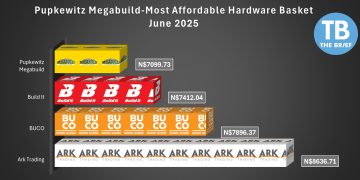
Reconnaissance Energy Africa (Recon Africa) has announced that it has acquired additional data as part of ongoing exploration work in Namibia.
The Canadian oil and gas company stated that the collected data, obtained through Enhanced Full Tensor Gravity (eFTG) surveys and 2D seismic, will provide greater precision in selecting locations for its upcoming drilling program, once interpreted and analyzed.
“With the advantage of this new data, the company is focused on interpreting and integrating all subsurface data, including well data, 2D seismic, eFTG, geochemical data, and building an updated risk-weighted prospect portfolio, enabling the development of a systematic drilling program,” the company said.
Recon Africa plans to drill 12 additional wells in the Kavango East and West regions as part of its ongoing exploration work.
The eFTG survey, which covers a total survey area of approximately 5,000 km2, was contracted to the United Kingdom airborne geophysical survey specialist, Metatek Group Limited, according to Recon Africa.
Regarding the 2D seismic survey, Recon Africa has acquired a total of 2,755 line kilometers, of which nearly 2,000 kilometers of data has been processed and interpreted.
The data according to the company, will form an integral part of its upcoming annual resource report within the PEL 73 area.
“In the absence of 3D seismic, lateral continuity and mapping of structures are compromised due to the uncertainty in interpolation between more widely spaced 2D seismic lines. eFTG enables us to overcome this unpredictability. The obtained images so far, of very high quality, show the basin fault patterns, extent and continuity of intra-basin structural highs and feasible hydrocarbon traps, and possible hydrocarbon source kitchens (source rock) in the deepest parts of the basin,” said Shiraz Dhanani, Recon Africa’s Chief Geophysicist.
Recon Africa is publicly traded on the TSX Venture Exchange and the Frankfurt Stock Exchange, focusing on exploration in the newly discovered deep Kavango Sedimentary Basin in the Kalahari Desert of northeastern Namibia and northwestern Botswana, where it holds petroleum licenses comprising approximately 8 million contiguous acres.
Seismic exploration involves the search for commercially economic subsurface deposits of crude oil, natural gas, and minerals by recording, processing, and interpreting artificially induced shock waves in the earth. eFTG, on the other hand, is an advanced high-resolution airborne gravity survey that specifically enables earth scientists to identify changes in subsurface rock density, with the goal of highlighting stratigraphic or structurally controlled hydrocarbon traps.













